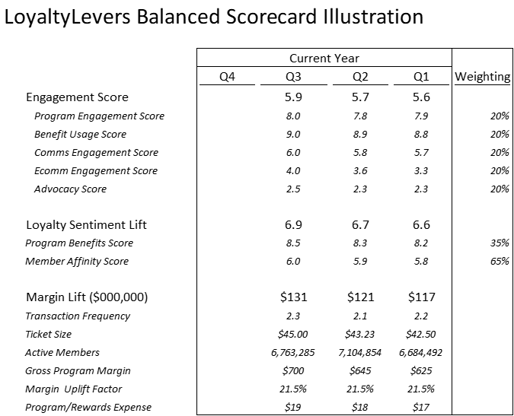BGREEN TV: Your Source for Green Innovations
Explore the latest trends and innovations in sustainable living, eco-friendly technology, and green entertainment.
Love at First Score: Decoding Loyalty Scoring Algorithms
Unlock the secrets of loyalty scoring algorithms and discover how they can transform your customer relationships! Dive in now!
Understanding the Science Behind Loyalty Scoring Algorithms
Loyalty scoring algorithms are complex systems designed to evaluate and quantify customer loyalty based on a variety of factors. These algorithms typically analyze data such as purchase history, frequency of transactions, and customer interactions with a brand. By leveraging advanced data analytics, companies can identify patterns and behaviors that signify loyalty, allowing them to tailor their marketing strategies accordingly. For instance, a customer who consistently engages with promotional emails and routinely makes purchases may be assigned a high loyalty score, indicating their potential value to the business.
Furthermore, understanding the science behind loyalty scoring algorithms involves recognizing the importance of machine learning and predictive analytics. These technologies enhance the accuracy of scoring by continuously learning from new data. As more consumer interactions are recorded, the algorithms adapt, refining their predictions about future behaviors. This dynamic approach ensures that businesses can remain proactive in their customer retention efforts, providing personalized experiences that foster deeper connections. Ultimately, a well-designed loyalty scoring model not only benefits the company but also enriches the customer experience, promoting a win-win scenario.

Counter-Strike is a popular tactical first-person shooter game that has captivated players worldwide since its inception. In this highly competitive environment, players often engage in intense matchups, sometimes even requiring a duel promo code to gain an edge over their opponents. With various game modes and a vibrant esports scene, Counter-Strike continues to evolve and attract both casual gamers and professional players alike.
Top 5 Factors Influencing Your Loyalty Score Explained
Understanding the factors influencing your loyalty score is essential for businesses aiming to foster long-term relationships with their customers. One of the primary factors is customer satisfaction. Satisfied customers are more likely to remain loyal and recommend your services to others. Another crucial factor is customer engagement. Regular interactions through social media, email campaigns, or in-store events can significantly enhance your loyalty score. Additionally, brand perception plays a vital role; how customers perceive your brand affects their likelihood of returning and staying loyal.
Moreover, rewards programs can directly impact customer loyalty. Offer incentives that encourage repeat purchases and reward customers for their loyalty. The quality of customer service also cannot be overlooked; exceptional service leads to positive experiences that embed your brand in the minds of customers. Lastly, consider the competitive landscape; understanding how your offerings stack up against competitors can help you identify areas for improvement in your loyalty strategy. By focusing on these five key factors, you can effectively enhance your loyalty score and drive sustained business growth.
How Can You Improve Your Loyalty Score with Effective Strategies?
Improving your loyalty score is essential for any business aiming to foster lasting relationships with customers. One of the most effective strategies is to enhance customer engagement. Regularly interact with your audience through personalized emails, social media platforms, or loyalty programs. Implementing feedback systems, such as surveys or reviews, allows you to understand their needs better and tailor your offerings accordingly. Additionally, rewarding customers for their loyalty with exclusive discounts or early access to products can significantly increase their emotional connection to your brand.
Another strategy to boost your loyalty score is to focus on delivering exceptional customer service. A positive customer experience can lead to repeat business and referrals. Train your staff to be responsive and empathetic when addressing customer issues. Consider creating a dedicated support team to handle inquiries promptly. Furthermore, using data analytics to anticipate customer needs and preferences can enhance service delivery, making customers feel valued and appreciated. By actively seeking out ways to improve interactions and satisfaction, you'll foster a loyal customer base that advocates for your brand.